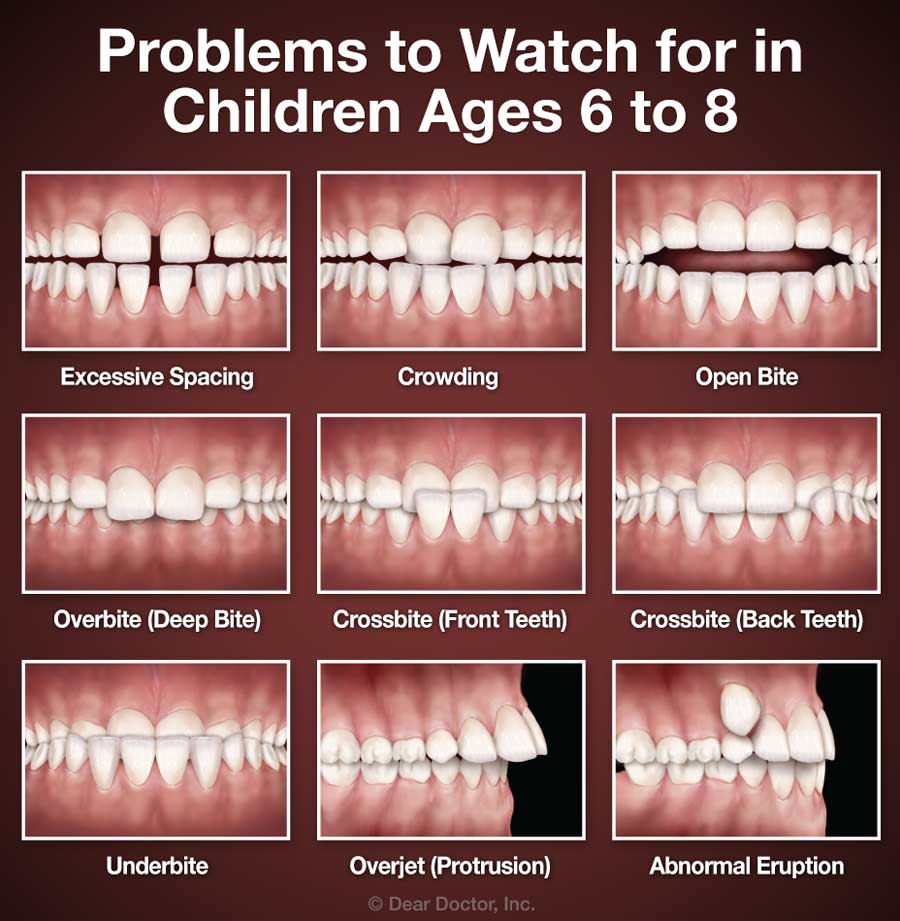When it comes to your child’s dental health, the adage “sooner rather than later” holds significant weight. As an orthodontist deeply committed to providing optimal care, I emphasize the importance of early evaluation and potential treatment for youngsters. Here’s why.
Orthodontic Issues: Necessity of Timely Assessment
Early intervention in orthodontic matters can reap substantial benefits for children. While early evaluation doesn’t always translate into immediate treatment, it allows us to monitor growth patterns effectively until the optimal time for intervention arises. This strategic approach ensures the best outcomes efficiently and helps prevent future complications.
Typically, around the age of six, most children begin to experience the emergence of their first adult molars, marking a crucial developmental milestone. This period allows us to assess fundamental teeth alignment, both horizontally and vertically, and gauge the adequacy of space for permanent teeth. Early detection enables proactive measures if space deficiencies are identified.
Advantages of Early Treatment
Orthodontic treatment for common issues typically commences between ages 9-14, coinciding with the transition from primary to permanent dentition. However, certain conditions are more amenable to early intervention, leveraging children’s ongoing growth processes:
- Severe Crossbite: This condition, where upper teeth close inside lower teeth, can be effectively addressed with a palatal expander, particularly beneficial when jaw development is ongoing. Early intervention mitigates the need for complex treatments or surgical corrections later on.
- Severe Crowding: When jaws are insufficiently sized to accommodate permanent teeth, severe crowding ensues. Early measures such as palatal expansion or selective tooth extraction facilitate proper tooth eruption, potentially shortening and simplifying subsequent orthodontic treatment.
- Other Early Treatable Conditions: Protruding teeth, severe underbites, and other bite irregularities can be rectified during this developmental stage, minimizing the likelihood of surgical intervention later in life.
Addressing Parafunctional Habits
Certain parafunctional habits, if left unaddressed, can impact dental development. Early detection and intervention are vital for mitigating potential damage:
- Thumb Sucking & Tongue Thrusting: Prolonged thumb sucking or tongue thrusting can exert pressure on teeth and jaws, leading to malocclusions like open bite or speech impairments.
- Mouth Breathing: Chronic mouth breathing can disrupt normal jaw growth, potentially exacerbating orthodontic issues.
Early Orthodontic Consultation: Your Child’s Well-being Matters
At Derek Damon Orthodontics, we prioritize your child’s dental health and overall well-being. Early consultations allow us to identify and address orthodontic concerns, safeguarding your child’s smile and long-term oral health. If you observe any symptoms indicating underlying orthodontic issues, don’t hesitate to reach out to us. Your child’s smile is our utmost priority, and we’re here to ensure it shines brightly for years to come. Contact Derek Damon Orthodontics in Bellingham or Anacortes today for proactive orthodontic care!

